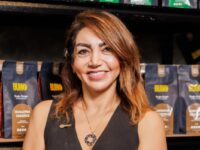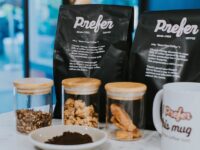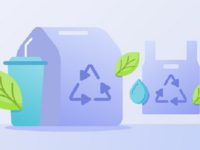For over 10 years, Australian-owned business EcoBarista has been supplying sustainable, eco-friendly packaging to roasters and cafes all over the country, with names Industry Beans, Reuben Hills, St Ali, Stitch Coffee, Pablo & Rusty, Bear Bones and Marvel Street as among some of its clientele.
“I saw a lot of people within the coffee industry grappling with how to take their business in a sustainable direction,” EcoBarista’s founder Zac Fryer said. “Packaging was a big part of that struggle for them. So, our vision has always been to support our industry with really sustainable, responsible solutions, and to innovate in that space.”
“It’s about conscious packaging that’s made with coffee in mind, to honour the planet, the growers, the roasters, the maker and the end consumer,” Fryer added. “I think by focusing on coffee and resisting the urge to become a one-stop-shop for everything, we’ve been able to build really strong relationships with our customers and deliver very high-quality products.”
While it has faced stiff competition with packaging giants like BioPak and Detpak, EcoBarista has experienced significant growth in the market over the last few years, growth that Fryer attributes to honing in on their niche, and their focus on relationships.
EcoBarista designs its products by first considering end-of-life, and favouring plant-based materials that can be composted and returned to the earth, or recycled at a bare minimum. The business sees its role as not just providing eco packaging to its customers, but helping them align with the 2025 National Packaging Targets.
“We also see a big part of our job being to help our cafe and roaster customers to educate their end consumer on how to compost more, recycle better and how to properly dispose of their cups and bags once they’ve consumed their products,” Fryer said. “Because if the end-consumer isn’t equipped with knowledge, what we’re doing is just good marketing.”
The company’s range includes coffee cups, lids and bags, including a rapidly renewable coffee cup lid, which is made purely from sugarcane and can be home composted after use,as well as home compostable coffee bags, made from materials certified by TÜV Austria’s OK Compost HOME certification programme.
“We love coffee, and we believe that to sustain our industry and the planet that makes it possible, we need to be really conscious about the way we package it,” Fryer said. “While this sounds like a weird thing for a packaging company to say, eventually single-use packaging as we all know it shouldn’t exist. We hope to continue to innovate to revolutionise what packaging looks like for the coffee industry and beyond.”















